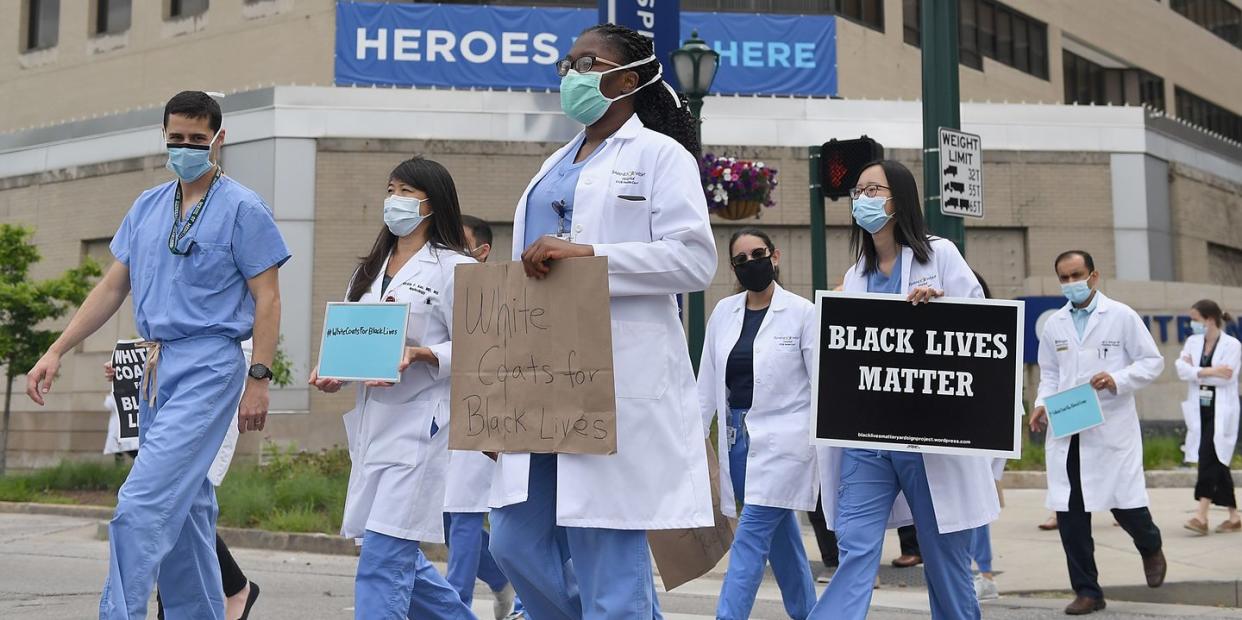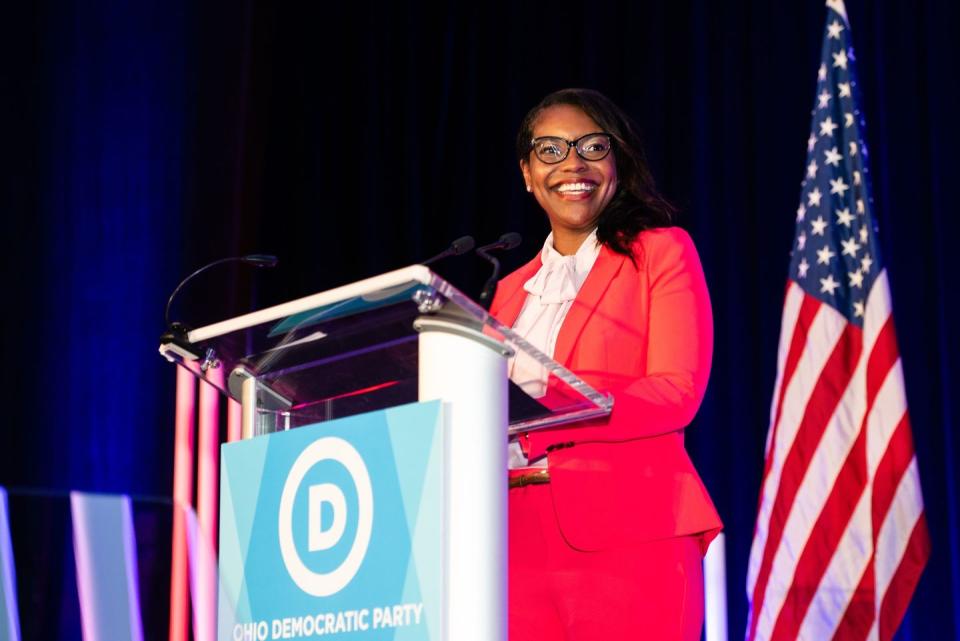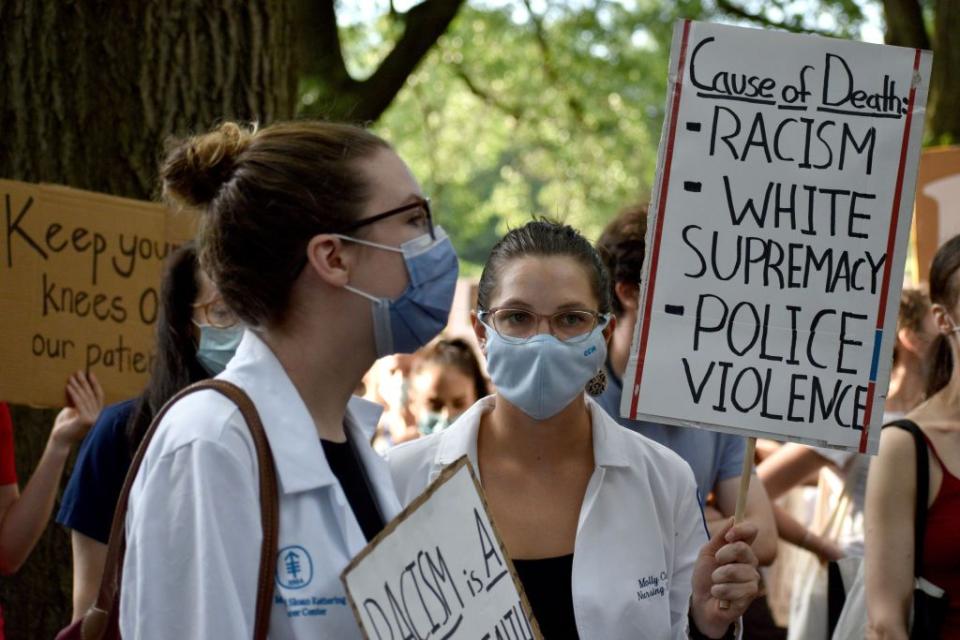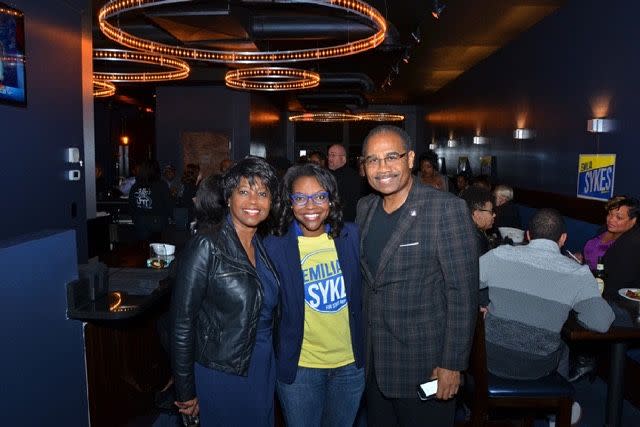Why Racism Is a Public Health Crisis

A few years ago, Representative Emilia Sykes, a Democrat who represents the Akron area, was trying to enter the Ohio statehouse in Columbus when one of the guards stopped her. Sykes, who’s Black, showed him her badge, a lapel pin that denoted her status as an elected official. The colleague she was with—white, male—attested to her employment. When Sykes finally convinced the guard to let her though, she asked why he’d balked. “His response was, ‘Well, you don’t look like a legislator.’”

Sykes, now 34 and the minority leader in the statehouse, is pushing for real action to address systemic racism—the kind that makes law enforcement second-guess that a young Black woman could be a state legislator. Last week, amid a national reckoning on racism and police brutality sparked by the killing of George Floyd, she and her colleagues introduced a resolution demanding that racism be declared a public health crisis. (A handful of cities and counties have passed resolutions to do the same in recent weeks, including Milwaukee, Boston and Montgomery County, Maryland.) Here, Sykes, who was recently named a finalist for EMILY’s List’s Rising Star award, explains why.
ELLE: In the wake of George Floyd's killing, why not tackle racism through policing reform? Why take the approach of dealing with it as a public health crisis?
Emilia Sykes: Public health permeates everything that we do, whether we're talking about education, a job, access to health care, home ownership, child-bearing. The idea of public health is protecting wellness and eliminating illness from as many people as possible. Racism is the systemic oppression of people who are deemed inferior, and the result of that is detrimental to people's health. In an obvious form, it is: I go to a medical professional and they view my black body as dangerous or dirty, so I don't get good care. But it’s also my educational opportunities. Imagine if I can't read and I can't write and I can't articulate myself. Then I get to this health care professional, and they give me my medical orders and I can't read them. How am I going to comply? The education you get [impacts] the type of job you get. And the job you get is determinant of whether or not you have health insurance. If I have a job that doesn't have health insurance because I was never educated well enough to get one of those types of jobs, now I'm reliant upon emergency departments or something else that is less healthy. And then we have the coronavirus, which is clearly an issue for every single person in this country, but it impacts Black bodies differently, and it is disproportionately impacting Black communities in a negative way.
When it comes to criminal justice reform, there is really nothing any more detrimental to our health than being killed by a system of oppression in policing. Racism is a root cause of all of these things. So the thought behind calling it a public health crisis is we have the opportunity to spread our reach beyond policing to housing policy and education policy, as well as environmental policy and maybe reproductive health. It allows us to start looking at how structures are racist, these institutions are racist, and then how does it impact our health and wellness?

Last week, one of your colleagues, a state senator, asked whether “colored” people are more susceptible to getting coronavirus because they don't wash their hands as much. He's also an ER doctor. What does that say about our country and the work that you're doing?
It is a personification of our point about racism as a public health crisis. Here, you have a person who not only has authority to make policies and change laws, he’s also working on the front lines of health care providers, where the people who often don't have any health insurance go. First, he doesn't understand health disparities and how they work. And second, he is perpetuating racist stereotypes by suggesting that Black people are unclean or incapable of following directions. Unclean and unintelligent. A policy-maker and a front-line healthcare worker.
One of the things that we wanted to do with the resolution is to acknowledge that there is a problem. You can't fix a problem if you are unwilling to acknowledge that there is a problem. The statements were made during a hearing about the resolution, and as much as it was devastating to hear and shocking to hear, it helped us identify the problem.
In talking about the events of recent weeks and the pandemic and its disproportionate impact on Black people, we also have to talk about the huge crowds of protestors putting themselves at a higher risk of getting coronavirus. How do you weigh those risks?
We have two viruses infiltrating our country: the coronavirus and racism. Racism has been around for 400 years. We know it, we understand it, and for those of us who are experiencing it, we know how deadly it is. The coronavirus is new, and while it is deadly and harmful, it is nowhere near as harmful as racism has been to Black people since the founding of this country. People are willing to take the risk, because if they can change these systems for generations in the future, that's what people are willing to risk their lives for. Not haircuts, not manicures, not mimosas. Real change. Systemic change. Addressing the root causes so that the virus of racism that has permeated nearly everything can be eradicated. It is a risk analysis that people are taking, and I think they'd rather risk catching the coronavirus than having to experience racism for another 400 years.
How will you be able to move forward with and ultimately pass this legislation given that Republicans control both the legislature and the governor's mansion in Ohio?
I'm going to paraphrase a quote I read from the director of Health Affairs magazine, Alan Weil. He said that racism is one of the tools in the toolbox that people use to maintain their power. It is very clear that the people, particularly those in the House who are unwilling to have the conversation, recognize that using racism can keep them in power.
The way that we fix this is for all of those voices who have been outside of the statehouse, who have been marching around the statehouse, vote them all out. That is a long-term strategy, but fixing racism, a 400-year virus, is not going to happen overnight.
You and your father, who’s a state senator, have received death threats because of your work. How are you navigating this crisis, both as a legislator and as a Black woman in America?
It certainly is challenging, and it is telling, because there's a special type of terror that is exhibited toward Black women, especially those of us in power who are willing to speak up and speak out against injustices. The violence that someone is willing to perpetuate upon my Black body to get me out of a position where they deem me powerful and perhaps effective, is outrageous, and unfortunately has been supported by some people as just politics. These are the tools that people employ to make sure that we don't have power.

The pressure from protesters has inspired real action. How do you keep this going when there aren't protests, when people's attentions have moved on—that is, white people's attentions have moved on. How can this movement sustain its momentum?
It's a tactic that the people who don't want to change happen to rely upon: We'll move onto the next crisis, we'll forget about what happened, and they never have to address the issues. But it's the reason why the racism as a public health crisis resolution is so important, because it is going to the root cause and will hopefully fundamentally change the way in which people approach the work and do the work.
I do hope that white people who are moved by this, who have been moved by this, are willing to keep the pressure up. Because people of color did not create these systems. It is really up to white people being willing to be allies, being uncomfortable for just a little bit, recognizing the uncomfortableness that they are feeling is nothing compared to the uncomfortable feeling of experiencing racism, and using that to keep going. And using that to envision a better America and a better Ohio. Right now, we're holding out on faith that people are willing to do that.
You Might Also Like

